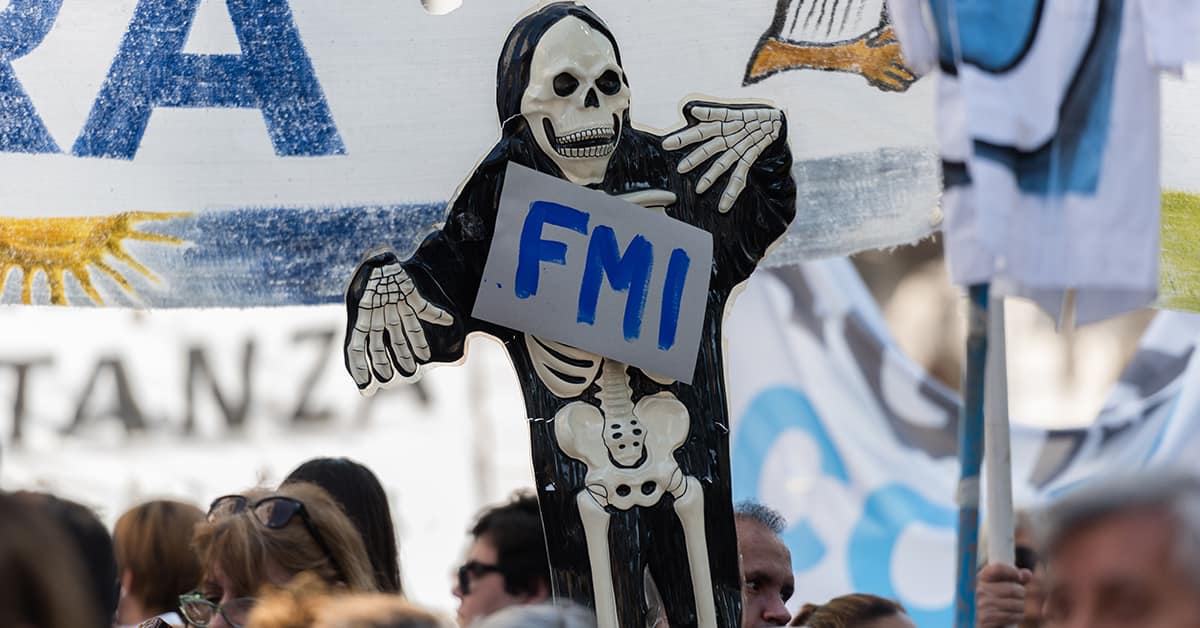Some expected more generous terms to ensure economic stability takes hold in thestruggling economy. They are disappointed.

A contentious deal with the International Monetary Fund (IMF) to refinance some $45 billion in debts, agreed “in principle” in late January, sent thousands of Argentinians to the streets to demonstrate against austerity measures and the spiraling cost of living. With the details finalized on March 3 for ratification by the Argentine parliament (expected next week), it could lead to the collapse of the center-left coalition run by president Alberto Fernández.
Strong disagreements over the terms of the deal have already led to the resignation of the leader of the powerful Peronist bloc Máximo Kirchner, who is also the son of the country’s vice-president, Cristina Fernández de Kirchner. After losing the senate majority in November’s mid-term legislative polls, Alberto Fernández could also see his reelection chances in jeopardy in next year’s presidential race.
The debate spilled over into the highest echelons of the academic world when Joseph Stiglitz, a Nobel laureate and professor at Columbia University, argued in two separate columns that Argentina, with strong economic growth last year, is currently experiencing “an economic miracle.” He suggested that the IMF “did not insist, as it usually does, on austerity,” so as to provide the country with room to continue its economic recovery.
The backlash was immediate, with several economists—including Willem Buiter, Stiglitz’s colleague at Columbia—countering that the strong GDP growth experienced last year by the economy was just an effect of the reopening of certain sectors shut down by the pandemic, and that the agreement with the Fund did not substantially change the original terms. Some also pointed out that Stiglitz had neglected to mention that Martin Guzman, the Argentinian economy minister, was for many years a protege and remains to this day a friend.
To be sure, Argentina’s relentless political and economic crisis has no easy fixes. With chronic inflation running at over 50% a year, unemployment and poverty rates rising, and a fiscal deficit deepened by the pandemic, the government—according to its critics—cannot accommodate the demands of the IMF without tightening spending on essential social programs and crippling any chance of real economic recovery.
Yet, while most Argentines dislike the idea of accepting such an agreement, the deal with the IMF may be an unfortunate imperative. “Without it, the government, short of the necessary dollars, would be forced to default on the money it owes to the Fund,” says Arturo Porzecanski, an expert on Argentina and Research Fellow at American University’s Center for Latin American Studies. “That would increase its international financial isolation even more than that experienced after the infamous default of 2001-02, because at that time Argentina did sign on to short-term programs that enabled a refinancing of prior IMF loans.”
Worse, Porzecanski argues, failure to reach an agreement, or to meet its objectives, could easily trigger a domestic confidence crisis. “That would see businesses and the middle class withdrawing their sizable dollar deposits with local banks, which in turn would provoke a financial and economic paralysis with unpredictable social and political consequences.”



